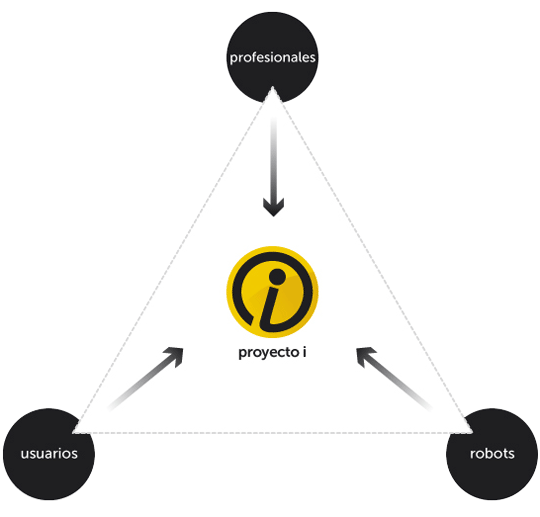Some have said the future of journalism belongs to robots. Not the tin-made ones though, the ones that collect and organise information. At LaInformacion, that future is now.
LaInformacion looks just like any other news website, it has all the features we would expect of any other news website. And yet most of LaInformacion’s content is not sourced by a team of diligent scribblers but by machines. Mario Tascón, head of LaInformacion’s parent company Diximedia, explains how it’s done:
From 12:00 am until 6:30am the editor in chief is an algorithm that selects and organises the news that we get. It analyzes social network and search engine trends in real time. It’s a less expensive way to maintain a website during certain periods, and if you can’t notice it, it’s because it doesn’t work that bad.
According to Tascón the algorithm produces a huge amount of information: “More than 5,000 stories get into the system every day, including videos, texts and infographics.” That’s five times more than elpais.com, the second most read news website in Spain. A substantial part of that content isn’t generated in their newsroom but sourced from a network of partners: websites specialising in sports, technology, international affairs, etc. And since the source material is monitored in real time, they don’t have to worry about breaking news.
LaInformacion has a great technological frame that lists thousands of news stories in real time, so our approach to ‘breaking news’ uses far fewer resources than the traditional media. Breaking news is analyzed by the machines, using ‘semantic intelligence’. With that part of the job in the hands of the algorithms, journalistic resources are dedicated to researching elaborate stories and providing them with added value, and to experimenting with new narratives and different techniques.
Though it’s only been officially out of the beta phase since September, LaInformacion has already established a solid audience. According to Nielsen’s ratings, the site had 1.6 million users in December. Elmundo.es, which came top of the list, had 6 million. Asked how he felt about the paywall model, something he worked with whilst running elpais.com, Tascón’s answer was quite simple: “[Pay walls] are not going to work for those who want to develop the business. If the main goal is to protect print, let them shut down their websites, but they will kill their brands by doing so.”
If he’s right, the initial investment of 26 million Euros (22.5 million pounds) will be covered by the enterprise’s fourth year. In an environment where the market and the technology are developing faster than any model has time to establish itself, what are the next steps for Lainformacion then?
“To be fast and focus on what we know how to do best. As for the rest, associate with those who do it well.”

LaInformacion's trinity: users, robots and pros
